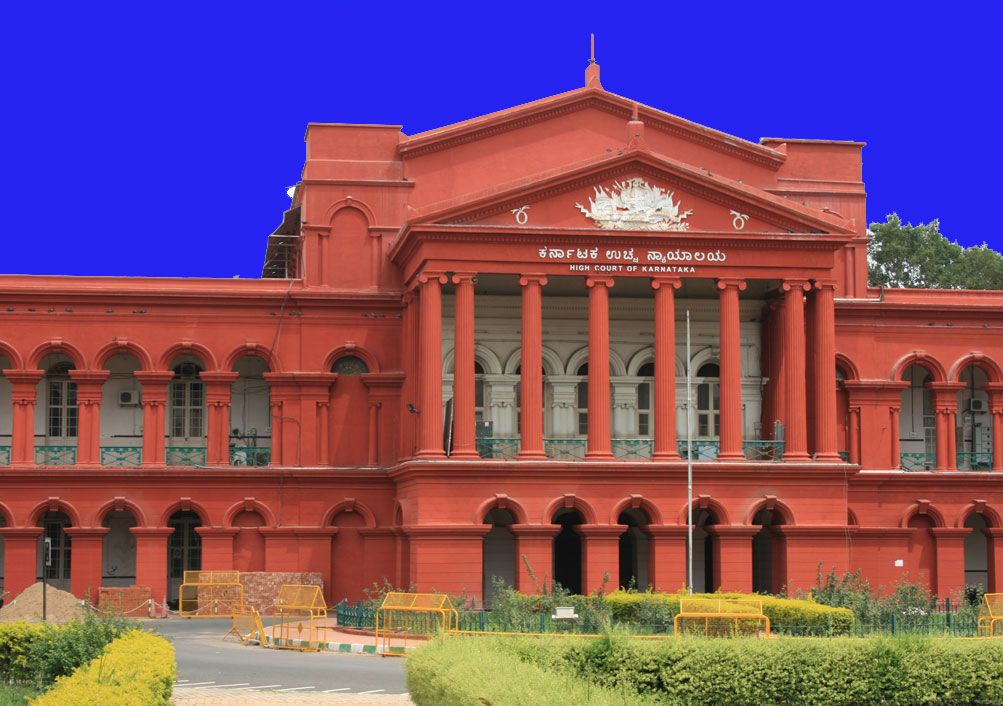In WRIT PETITION No.32335 OF 2017-KAR HC- Courts should not substitute their opinion with findings recorded by Disciplinary Authority, except under extraordinary circumstances: Karnataka HC Justices P.S.Dinesh Kumar & M.G. Uma [06-05-2022]

Read Order: INDIAN COUNCIL FOR CULTURAL RELATIONS Vs. Mr. AJAY MERCHANT
Mansimran Kaur
Bengaluru, May 30, 2022: The Karnataka High Court has held that courts shall not substitute their opinion with the findings recorded by the Disciplinary Authority, except under extraordinary circumstances such as violation of principles of natural justice or the punishment being grossly disproportionate.
The Division Bench of Justice P.S.Dinesh Kumar and Justice M.G. Uma, while dealing with the two contrary writ petitions assailing the order of the CAT, Bengaluru allowed the writ petition filed by the ICCR. The Bench observed that the entire record showed that the applicant had indulged in correspondence rather than appearing before the Enquiry Officer and defending his case.
Brief facts of the case were that the British Council Division of the British High Commissioner had their libraries positioned at various places in India. The ICCR and the High Commissioner entered into an MOU for collaboration and administration of British Libraries. As per Clause III of the MOU, the British High Commission had agreed to pay 3% of annual budgetary amount through ICCR for British Libraries. In terms of the MOU, ICCR offered the job of Manager in the British Library, to the applicant Ajay Merchant. However, in 2012, there were certain allegations pertaining to making inappropriate comments to women colleagues were alleged against the applicant. Consequently, a memo of charges dated June 7, 2012 was issued. In view of the same, the applicant contended that the British Council was not his employer and thus, he refused to respond.
After a round of enquiries, the ICCR terminated the services of the applicant on October 16, 2014. The same was assailed before the CAT, Bengaluru. Feeling aggrieved by the CAT’s order setting aside the termination, ICCR filed the present writ petition. Another writ petition was instituted by the applicant being aggrieved of denial of wages.
Considering the rival contentions of both the parties, the Court observed that it was not a disputed fact that the applicant was offered the job by ICCR with the British Library. It was clear that the applicant was appointed by the British Library, the Court noted. Further on analyzing the chain of events in the instant case, the Court stated that when British Council called upon the applicant as per Annexure- A15, dated July 2, 2012 to appear on July 9, 2012 at the British Council Library, applicant took a specific stand in his reply dated July 5, 2012 that as per legal advice British Council was not his employer. Yet he indulged in various correspondences.
Thereafter, in 2013, the applicant took a contrary stand and approached the Employment Tribunal in England against the British Council which had ruled that the British Council was not the employer, the Court noted. The Court further held that the present case was a distinct case wherein, a Foreign Country is running its Libraries in various cities in India and has taken the assistance of ICCR to disburse the budgetary amount. Thus, the Court opined that the finding recorded by CAT that ICCR was the appointing and Disciplinary authority was not sustainable and British Library was the employer, the Court added.. Further, the Court was of the view that the applicant indulged in correspondence rather than appearing before the Enquiry Officer in defending his case.
In view of the same, the Court held that in the present case several opportunities were given to the petitioner to defend his case.The Court observed that no intervention was needed with the order of the termination. Hence, the order passed by the CAT was quashed and set aside and accordingly the writ petition was set aside.
Sign up for our weekly newsletter to stay up to date on our product, events featured blog, special offer and all of the exciting things that take place here at Legitquest.




Add a Comment